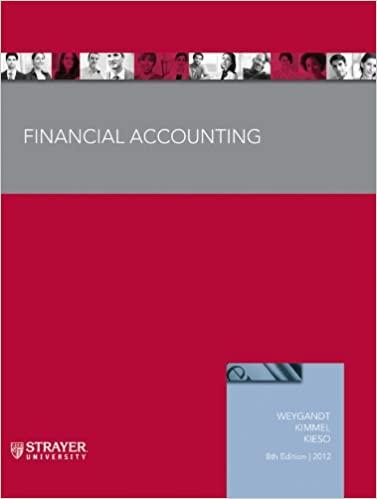Question
Project A requires an original investment of $50,000. The project will yield cash flows of $13,400 per year for seven years. Project B has a
Project A requires an original investment of $50,000. The project will yield cash flows of $13,400 per year for seven years. Project B has a calculated net present value of $3,730 over a four year life. Project A could be sold at the end of four years for a price of $19,600.
Below is a table for the present value of $1 at Compound interest.
| Year | 6% | 10% | 12% |
| 1 | 0.943 | 0.909 | 0.893 |
| 2 | 0.890 | 0.826 | 0.797 |
| 3 | 0.840 | 0.751 | 0.712 |
| 4 | 0.792 | 0.683 | 0.636 |
| 5 | 0.747 | 0.621 | 0.567 |
Below is a table for the present value of an annuity of $1 at compound interest.
| Year | 6% | 10% | 12% |
| 1 | 0.943 | 0.909 | 0.893 |
| 2 | 1.833 | 1.736 | 1.690 |
| 3 | 2.673 | 2.487 | 2.402 |
| 4 | 3.465 | 3.170 | 3.037 |
| 5 | 4.212 | 3.791 | 3.605 |
(a) Using the present value tables above, determine the net present value of Project A over a four-year life with salvage value assuming a minimum rate of return of 12%. Round your answer to two decimal places. Enter negative values as negative numbers. $
(b) Which project provides the greatest net present value?
Step by Step Solution
There are 3 Steps involved in it
Step: 1

Get Instant Access to Expert-Tailored Solutions
See step-by-step solutions with expert insights and AI powered tools for academic success
Step: 2

Step: 3

Ace Your Homework with AI
Get the answers you need in no time with our AI-driven, step-by-step assistance
Get Started


